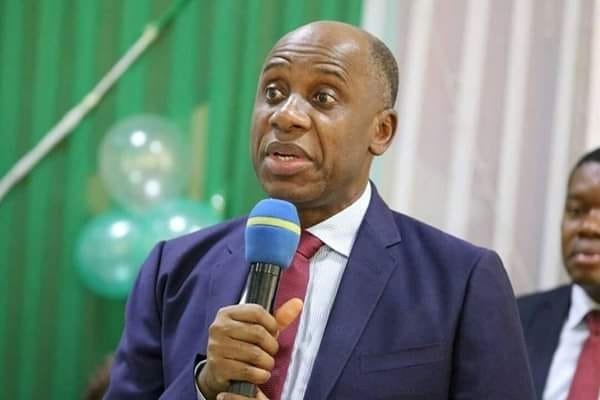The Minister of Transportation, Mr Rotimi Amaechi has said Nigeria is building massive transportation infrastructure across the country to key into the benefits of the African Intercontinental Free Trade Area (AfCFTA) trillions of dollars market.
He said this is because the transportation sector is the most critical in implementing trade facilitation, enhancing regional integration and key to every other AfCFTA Protocol.
Hence, the minister said, “The Nigerian government has embarked on huge transport infrastructure investment across the country to ensure efficiency in the transportation sector.”
He stated this Tuesday in Abuja at a 2-day international conference on “The Role of Transportation on African Intercontinental Free Trade Area (AfCFTA)” organised by the Nigerian Institute of Transport Technology (NITT), Zaria.
The Minister was represented by Dr Magdalene Ajani, the Permanent Secretary, Federal Ministry of Transportation.
He noted that the ministry has taken cognisance of the pivotal role transportation plays in AfCFTA implementation and as such, is making concerted efforts in: “Improving intermodal transportation and trade facilitation by linking major seaport ports in the country with rail line starting with the Apapa Port Complex, goods will move from the ports to the Dry Port complexes in Ibadan while those that are Kaduna and Kano bound continue to either use the Kaduna or Dala Dry Ports.
“Improving digital infrastructure by automating train, marine and road operations and “completing ongoing transport projects and upgrade through the completion and making operational the Abuja – Kaduna, Lagos-Ibadan, Itakpe – Ajaokuta – Warri Standard gauge rail lines; rehabilitation of Narrow-gauge lines, groundbreaking of the Kano-Maradi Rail lines, commissioning of the Deep Blue Sea Project, the commencement of the wreck removal exercise; among others.”
He noted that there are efforts to implement quality infrastructure by producing certified transport professionals and enforcing quality standards and certification for transport operators” among others.
Also speaking at the conference, the DG NITT, Dr. Bayero Salih Farah, said the intra-African trade stands at about 15 per cent, an abysmal fact attributable to unnecessary bottlenecks and infrastructure deficit.
Therefore, he said “There is an urgent need for massive investment in connectivity and transportation infrastructure because transportation is the link between all the factors of production.

 Join Daily Trust WhatsApp Community For Quick Access To News and Happenings Around You.
Join Daily Trust WhatsApp Community For Quick Access To News and Happenings Around You.


